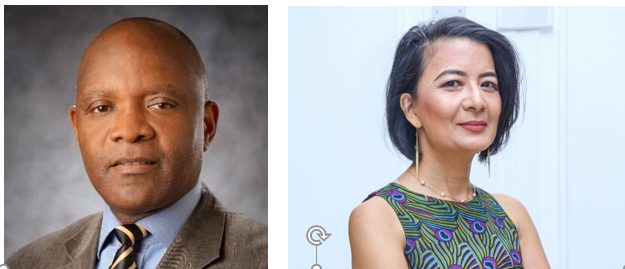The Mastercard Foundation, an independent non-profit organisation, has announced its intention to allocate US$1.3billion in partnership with the Africa Centre for Disease Control and Prevention (Africa-CDC) over the next three years to assist in the fight against COVID-19 pandemic and economic recovery on the continent.
The initiative, which is dubbed ‘Saving lives and livelihoods’, is aimed among others aimed at producing over 50 million vaccines to help the Africa Union (AU) in achieving its target of vaccinating about 60 percent of the continent’s population be end of year 2022; and also hasten economic recovery through job creation, poverty alleviation and financial assistance.
President and CEO of Mastercard Foundation, Reeta Roy, indicated that the partnership initiative has four main objectives, which are: access to COVID-19 vaccines, development of COVID-19 vaccines, strengthening manufacturing capacity, and strengthening Africa-CDC to provide strategic oversight, coordination and support.
“Ensuring equitable access and delivery of vaccines across Africa is urgent. This initiative is about valuing all lives and accelerating the continent’s economic recovery. In the process, this initiative will catalyse work opportunities in the health sector and beyond as part of our Young Africa Works Strategy,” she said.
The benefits of the saving lives and livelihoods partnership includes enabling COVID-19 vaccines access to millions of Africans; strengthening member-states’ vaccine rollout capacity; strengthening African institutions to drive broader impact; and ensuring national, regional and global health security.
According to the Africa-CDC, the laid-down guiding principles of the initiative to ensure fairness and attain results are: inclusiveness of all member-states, equity-driven by member states needs; accountability in an efficient and transparent manner; collaboration; improvement of national health systems; and iteration and learning.
The key focus areas of the initiative include vaccine procurement and logistics; strengthen in-country logistics; vaccination centres setup and staff training; community engagement and risk communication; pharmacovigilance surveillance; genomic surveillance of SARS-CoV-2 variants; digital tools and systems; and technical assistance to national vaccination programme management.
Director of Africa CDC, Dr. John Nkengasong, reiterated that the partnership with Mastercard Foundation builds on the efforts of COVID-19 Vaccine Global Access Facility (COVAX), the COVID-19 African Vaccine Acquisition Task Team (AVATT), and the global community to expand access to vaccines across Africa.
He added that this particular partnership is a bold step toward establishing a new public health order for Africa.
“Ensuring inclusivity in vaccine access and building Africa’s capacity to manufacture its own vaccines is not just good for the continent, but the only sustainable path out of the pandemic and into a health-secure future,” he said.
The AU’s Champion for Domestic Health Partnership and President of Rwanda, Paul Kagame, also speaking at the launch expressed his heartfelt gratitude to the Mastercard Foundation for the commitment to support Africa. He stated that Africa does not take for granted the hard work that went into the partnership and commitment from Mastercard to assist the continent’s economic recovery.
“Three components stand out for me in this partnership: practicality and immediacy to commence of work; commitment to work with local health institutions to build their capacity; and finally, this is also a commitment to build Africa’s capacity to be able to develop and produce its own vaccines as well as develop its resources for self-sufficiency. This new partnership will help all of us to accomplish even more in the future,” he said.
Mastercard Foundation earlier on committed US$40million in collaboration with Africa CDC to expand access to testing kits and enhance surveillance capacity in Africa. Through that support, dubbed the Africa CDC Partnership to Accelerate COVID-19 Testing (PACT), nearly two million COVID-19 tests were deployed and more than 12,000 health care workers and rapid responders across Africa were trained.










